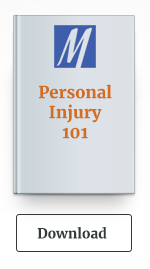 Every year, it seems that there’s a popular toy or product that is the subject of rampant bad publicity and multiple lawsuits. If you or your child is injured by a defective product, you may be able to recover for your injuries in a number of ways, including filing a lawsuit based on “strict liability.”
Every year, it seems that there’s a popular toy or product that is the subject of rampant bad publicity and multiple lawsuits. If you or your child is injured by a defective product, you may be able to recover for your injuries in a number of ways, including filing a lawsuit based on “strict liability.”
Strict Liability: Producers of Goods Have a Duty to the Public
Under New Jersey law, companies, manufacturers, distributors and retailers of products (hereafter collectively referred to as “producers”) owe certain duties to the public related to products they make or sell. These duties require that each product must be reasonably fit, suitable, and safe for its intended or reasonably foreseeable uses. If a product doesn’t measure up to this standard and a person is injured as a result, the injured person may have a claim against one or more of the responsible parties.
Strict liability doesn’t require that the producers did anything negligent or intentionally wrong. The law assumes that the manufacturer knew (or “should have known”) that the product was potentially harmful. To support a claim for injures based on a theory of strict liability, an injured plaintiff typically must prove the following:
- The defect was present in the product at the time it left the manufacturer’s hands, and
- The defect was the immediate cause of the plaintiff’s injury.
Producers owe these duties all people who use the product and anyone who may reasonably be expected to come into contact with the product – not just the purchaser of the product or its intended user.
How Can You Show a Product was Defective?
Under New Jersey law, there are three ways to show that a product was legally defective. A plaintiff must prove that either
- There was a defect or mistake in how the product was manufactured, which rendered a normally-safe product unsafe (e.g., a batch of baby formula tainted with botulism);
- The product was defectively designed (e.g., a crib mobile with detachable parts constituting a choking hazard); or
- The producer failed to adequately warn or instruct the public in the correct way to use the product or warn of its potential hazards (e.g., a child's gummy vitamin supplement that doesn’t come with a strong warning that it may be hazardous if eaten in large quantities).
Cases often depend on testimony relating to scientific analysis and testing of the product itself. If you have been injured by a product, be sure to preserve it as well as possible (or whatever remains of it).
Damages Available for Personal Injury Suits
In a New Jersey product liability lawsuit, the injured party can make a claim to recover financial losses as well as pain and suffering. The most common types of damages recoverable include
- Medical bills, including doctors’ visits, surgeries, rehabilitation, physical therapy, medications, etc. incurred as a result of the injury.
- Future medical expenses that are reasonably anticipated, such as expected future surgeries, nursing home care, etc.
- Lost wages, including compensation for time a plaintiff has already missed from work as a result of the injury as well as losses he or she will suffer if unable to return to work temporarily or permanently.
- Other financial losses, such as the cost of hiring help for the household (cleaning, chores, childcare, etc.), additional transportation costs, or other miscellaneous expenses that are directly related to the injury might be recoverable (as well as the cost of purchasing a replacement product).
- Pain and suffering compensation may be awarded for mental and emotional suffering caused by the occurrence, injuries, medical treatment, loss of enjoyment of life, and any permanent disability.
An injured plaintiff’s spouse may also be able to recover for loss of consortium, which is compensation for the lack of companionship, intimacy, and household services the plaintiff provided before his or her injuries.
A plaintiff might also be able to recover punitive damages if he or she can prove that the defendant’s acts or omissions that caused the injuries were caused by actual malice (bad intent) or due to a wanton and willful disregard of persons who foreseeably might be harmed by those acts or omissions.
It is important to speak to a knowledgeable New Jersey product liability lawyer to discuss all the types of damages you may be able to claim as a result of your injury. You must file claims based in strict liability within a specific timeframe after you are injured, so it’s vital that you seek legal counsel as soon as possible.
The Mark Law Firm’s New Jersey product liability lawyers can help with your Newark or Basking Ridge product liability claims. Our experienced personal injury lawyers will evaluate your claims and help you recover for your damages from the liable parties if appropriate. Contact us today for a consultation with our Newark, Basking Ridge, or Oradell lawyers.



.svg)